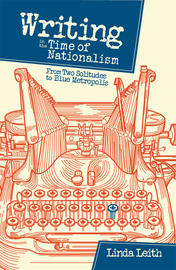Literary


You Want Your Truths Told of You by E. Travis Lane
You want your truths told of you—
those wavery lines!
Each pencil mark's a fiddlehead
unfolding to an island of wild fern,
of alders, grass, of willow trees,
of sharp dams in the silty sand
where a barefoot girl stands
to watch a cattle barge
rock, like a cradle in the wind.
She can not tell them where she stands,
her nude toes turning blue as clams
in the murky water where it chafes
the green facts into islands—
shoals, reefs, whirlpools, naked trees
scoured by the ice.
Her plain nouns bell their inner folds
like a coiled spring uncoiling
or like eggs
that tremble in her hand and beat
their shells with razor bills and spread
out wings.
Their shadows cast on the millstream float
on spinning water for all time,
never entirely truthful.

The Feminine Gaze


The Dangers of Poetry (for Italo Calvino) by Steve McCaffery
Maybe you don’t like this poem or perhaps you don’t want to read it perhaps you should do something else like wash last night’s dishes or watch TV if I were you I’d try reading a good book or even start to write one but perhaps you haven’t stopped reading this poem just yet while you’re wondering what else you could read or perhaps your interest in this poem has miraculously changed maybe you’re enjoying it or finding it a challenge or perhaps you’re simply thinking it would be a waste of precious time having read it so far to not read it to the end or perhaps there's nothing you can do because perhaps this is a class that you can’t get out of or the start of a conference you've paid a lot of money to attend or perhaps its a punishment prescribed in a minimum security prison you’re now in for five or even ten years or perhaps reading this poem has induced paralysis and you can’t move not even to blink your eyes or perhaps you believe it can’t get worse but it does get worse and you think all these thoughts again and then compare this poem to the start of Italo Calvino's novel If on a Winter's Night a Traveller and that the two might be related perhaps you think that this poem was actually written by Calvino under the pseudonym of Steve McCaffery and then you think that this might be the poem Calvino didn’t write but wished he had and by this time an entire week has passed and you’re still at your desk at the office because you never went home and perhaps you couldn’t have anyway because a friend called to tell you that your house burned down and all your pets and family burned to death because you were still reading this poem.
Ephemera by Steve McCaffery
What's this? Looks like a millennium for maximum embarrassment and quite proteiform in its lack of politesse an obsequious curling to the new philosophy of counter subterfuge but whatever it's doing it's doing it in secret perhaps it's just shot a pragmatist through an organ of transmission, or got hired as a transitory hieroglyph it looks too paranoid to have never read the Bible or is it an island shy enough to not become an archipelago or perhaps a genetic mutation right in the walls of the divine city. Imagine it saying that before it came to grammar as a micro-particle of order it was a thought in the head of William Blake. Reverence always beckons emblems to its New Atlantis to reconnoiter the several incapacities that seal a fate as noise.



The story I have to tell begins in the glory days when Hugh MacLennan published Two Solitudes in 1945 and Mavis Gallant, Brian Moore, and Mordecai Richler emerged on to the international literary scene in the 1950s. It's a story that moves into a long decline in English-language Montreal fiction that started in the 1960s, when nationalism was on the rise, and lasted more than three decades. This is a literary story, in other words, and a literary story best understood in the context of the time.
It's a personal story, as well. I am not from Montreal, but I am more at home here than anywhere else, having lived here for most of the time since immigrating with my family in 1963. I became interested in Quebec, and sympathized with Quebec's frustrations and aspirations. When I started teaching and writing about the work of Montreal writers in the late 1970s and 1980s, I focused on writers working in French as well as in English, and I discovered that Montreal's English-language writers had now disappeared from sight. I got involved in working to create the context in which it would be possible for them to thrive. I myself became a writer, and when I got to know other writers, a couple of us crossed town to work with French-speaking writers. By the late 1990s, I was part of a small group convinced that Montreal needed an international literary festival that would bring together writers working in English and French and other languages. I called it Blue Metropolis.
The story I have to tell continues to evolve, as new writers, new books, and new events appear on the scene every season. It's a story worth telling, for it has a good shape, with a glorious beginning, a disheartening middle, and a better ending than any of us could have predicted. The Anglo Literary Revival is what we were working for all along, even if we never imagined it would happen.


